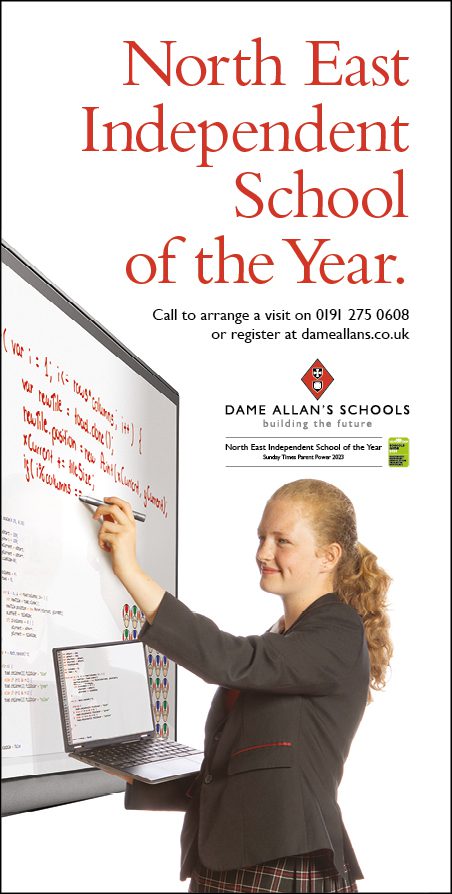By Geoffrey Stanford, Headmaster of Newcastle Royal Grammar School
At the Royal Grammar School Newcastle, we recently published our first formal Social Impact Report laying out our work supporting schools across the North East and engaging with young people throughout the region.
In the 2022/23 academic year, our partnership teachers, who are funded by donors including the Reece Foundation and British Engines, not only had direct impact through regular engagement with as many as 10,000 students in over 100 local schools but also had longer term indirect impact by helping to support and upskill as many as 600 of the region’s teachers. We are looking to expand this programme substantially and, in the coming academic year at RGS we are also launching School Centred Initial Teacher Training (SCITT) for Maths and Physics, with the intention of helping to address the teacher shortage in these key subjects.
In addition to our partnerships with State schools, we are consciously developing the scale of our means-tested bursaries, indeed one in 16 children now attend the school on a fully funded place.
Bursaries are targeted at families living in the most deprived areas of the region and in the past 20 years, the RGS has supported 447 bursary families, enabled by loyal donors who strongly believe in our school’s social commitment. Our intention is to scale up the impact that we have both inside and outside our school gates and we are consciously investing in our capacity to support this ambition.
Our social impact is of course not a new construct; as Newcastle’s oldest learning institution, approaching our 500th anniversary in 2025, RGS has educated many thousands of ‘Old Novocastrians’ who have gone on to shape the economic, social, physical and cultural landscape of our region and country. These – including many who attended only because of fee assistance – have built businesses, created jobs, attracted inward investment and designed infrastructure. Alumni who have gone on to become inventors, researchers, medics, authors and artists – to name just a few – have realised their potential at RGS. We are unapologetically aspirational for any child or young person born in the North East.
At the RGS, we consciously aim to keep fees as accessible as possible. Our parents are in main, hard-working families, who make sacrifices in order to choose a private education. Crucially, they already relieve the State of the cost of educating their children. It is for this reason that I am thoroughly unconvinced by proposed political policies, which would see VAT added to the fees of independent schools, presenting an existential threat to schools like the RGS. The seemingly easy headline of raising income by further taxing private schools, hides a number of unintended consequences for everyone.
Adding VAT to education will serve to make schools like the RGS less affordable while causing significant disruption for those families who could no longer manage the fees. This in turn will put additional burden on the maintained sector as those families look for places in local schools. It has been estimated by the Independent Schools Council that this would directly affect 25% of independent school pupils. In our regional context, it may well be a higher percentage but, even if it were this proportion, it would mean well over 300 additional pupils from the RGS alone needing to be educated by the state. The new burden on the region’s education bill could become very large very quickly, potentially obliterating any income the policy intended to raise and it will not address the wider issues currently faced by the maintained sector. My fear is that the policy will merely accentuate the postcode lottery that already exists with more affluent parents accessing a State education and redirecting school fees to private tutoring. The North East faces significant deprivation in schools that we partner with and I would not want another unfortunate outcome of the policy being to reduce our ability to fund our bursary and partnership work.
We all share a common goal of improving aspirations, educational attainment, skills and opportunities for young people in the North East. At the RGS we are actively collaborating to ensure joined up thinking with a range of organisations. While some may take different philosophical positions on how education may be best served in the region, I am deeply concerned by the introduction of a policy that is likely to negatively impact the state schools around us and have such a detrimental impact on the RGS’s ability to play our part in the development of the region.
www.rgs.newcastle.sch.uk

